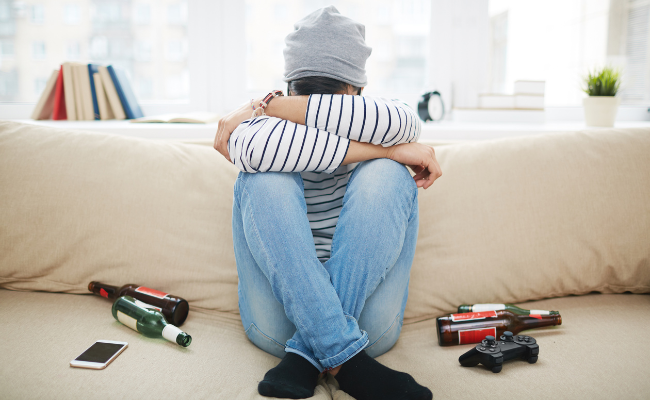New Research Reveals Loneliness Can Shorten Life Span
With digital connections and social networks at our fingertips, it’s surprising to know that we are facing a crisis of isolation and loneliness.
Recent research has confirmed the dire consequences of social isolation and feeling lonely. It also shows that these situations can result in earlier death from specific causes, including cancer.
A team of researchers delved into the intricate link between health and loneliness. They also highlighted the urgent need to know the underlying processes and implement efficient strategies to fight this prevalent problem.
A review involving 90 studies of more than 2.2 million individuals globally has revealed alarming data. People who confirmed feeling lonely or isolated are at higher risk of early death.
Social isolation and loneliness are associated with an increased risk of death from all causes, reports a systematic review and meta-analysis published in @NatureHumBehav. https://t.co/7maEAMm5nU pic.twitter.com/CZFKncO1rZ
— Nature Portfolio (@NaturePortfolio) June 19, 2023
The findings are published in Nature Human Behavior. However, according to a Medical Xpress report, the study was only limited to individuals from high-income countries. So it might not be applicable to less prosperous countries.
Director of the Social Connection and Health Lab at Brigham Young University in Provo, Utah Julianne Holt-Lunstad, shared her insights but was not part of the research. But most of her studies are focused on the health effects of loneliness.
You may also like: Shortness of Breath and Anxiety: Understanding the Connection
Holt-Lunstad said, “[This study] is consistent with my [2015] meta-analysis that found that both isolation and loneliness are significant predictors of [dying].”
She added, “This is also consistent with the U.S. Surgeon General Advisory on isolation and loneliness.”
The research shows that people who experience loneliness and self-isolation are more likely to have unhealthy lifestyles. These include lack of exercise, unhealthy food choices, excessive alcohol drinking, and smoking.
The Health Effects of Loneliness
Social isolation was linked to weak immune systems and inflammation, leaving individuals more vulnerable to specific health conditions.
Limited social interactions of isolated people can also affect their access to proper medical care.
Social Isolation vs. Loneliness: Their Difference
Social isolation is the lack of connection or contact with others, while loneliness is the feeling of being alone, even if there are social connections.
Both can harm health, but research shows that social isolation has more significant risks. By understanding their differences, health experts can create effective methods to address them properly.
Effective Strategies to Overcome Loneliness
Vice President of Health Services Research at the American Cancer Society Robin Yabroff said that there are several things one can do to fight loneliness and social isolation.
“The U.S. Surgeon General recently made a number of recommendations for increasing awareness of, recognizing, and addressing loneliness.”
Here are some of the effective methods based on experts’ advice:
Join Social Communities and Groups
Participating actively in social and community groups can form a sense of belonging that can aid individuals in building meaningful relationships.
Look for Support
During times of self-isolation and loneliness, seeking support is vital. It is important to confide in trusted family members, friends, or health professionals who can offer empathy, guidance, and companionship.
Limit Too Much Use of Social Media
While this digital age can provide digital connections and communication, excessive use of social media can result in feelings of comparison and disconnection. Opt for a healthy balance by setting limits and allocating quality time for face-to-face connections.
You may also like: New Study Reveals Employees Reject Breaks Despite High-Level Stress
Prioritize Self-Care
Healthy self-care practices like regular exercise, healthy eating, and enough sleep can positively affect overall physical and mental well-being. A healthy individual is more likely to build significant connections with others.
Participate and Volunteer in Acts of Kindness
Helping improve the well-being of others through acts of kindness and volunteer work not only helps fight loneliness. But it also forms a sense of fulfillment and purpose.
Overall, as loneliness is prevalent in our modern age, understanding its effects and enforcing effective methods to fight social isolation is crucial. By building social connections, seeking help when needed, and engaging in community activities, individuals can be free from the adverse effects of loneliness.
For more updates on the latest news and interesting articles, stay tuned at Inquirer.net.



